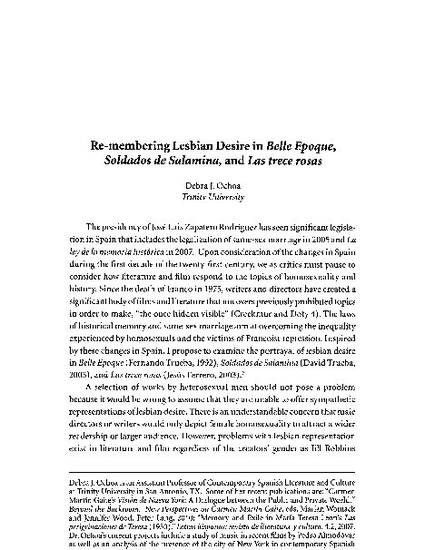
The presidency of Jose Luis Zapatero Rodriguez has seen significant legisla tion in Spain that includes the legalization of same-sex marriage in 2005 and La ley de la memoria historica in 2007.1 Upon consideration of the changes in Spain during the first decade of the twenty-first century, we as critics must pause to consider how literature and film respond to the topics of homosexuality and history. Since the death of Franco in 1975, writers and directors have created a significant body of films and literature that uncovers previously prohibited topics in order to make, "the once hidden visible" (Creekmur and Doty 4). The laws of historical memory and same-sex marriage aim at overcoming the inequality experienced by homosexuals and the victims of Francoist repression. Inspired by these changes in Spain, I propose to examine the portrayal of lesbian desire in Belle Epoque (Fernando Trueba, 1992), Soldados de Salamina (David Trueba, 2003), and Las trece rosas (Jesus Ferrero, 2003).2
